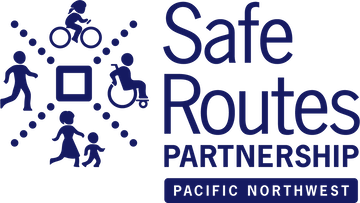Last fall, the International Panel on Climate Change released an ominous special report on the impacts of global warming of 1.5 °C above pre-industrial levels. This was soon followed by the Fourth National Climate Assessment in the U.S., outlining the impending risks and impacts that will affect us should we not take action to reduce climate emissions. As has been widely reported, we have little time to take great action and stave off the worst impacts, and there are many, many changes to make to reel in our collective climate emissions.
People who live in the Northwest already know that our communities have begun to feel the impacts of climate change. As the National Climate Assessment Chapter on Northwest impacts reminds us, “the communities on the front lines experience the first, and often the worst, effects [of climate change]. Frontline communities in the Northwest include tribes and Indigenous peoples, the economically disadvantaged, and those most dependent on natural resources for their livelihoods.” That’s why it’s so essential to target our work to those most in need, so that we will lift everyone up with the outcomes. We are heartened to know that when we take action, programs targeting climate emissions also address existing health impacts, climate impacts to come, and bring about environmental justice for our communities.
What is clearer than ever is that reducing climate emissions by moving away from a carbon-based economy is essential and urgent.
Transportation is one area that has a lot of potential. There have been solid gains in other areas of emissions reductions, such as utilities and building energy, but transportation emissions in the Northwest have gone up, not down, in recent years. The largest source of U.S. carbon emissions is transportation, and in both Oregon and Washington, transportation emissions now make up more than 40% of total climate emissions.
Although more must be done globally, we all must be leaders in supporting emission reduction, starting with making changes in the Northwest now. It’s time for us to all pitch in to reduce emissions from transportation.
Fortunately, we already know what to do to lower transportation emissions: massive support for bicycles, walking, and public transport. Electric Vehicles will be a huge part of this, but it will be some time until we get there.
"Even under really fast electric vehicle scenarios, the world is still going to build at least two billion more internal combustion engines" – Hal Harvey.
The land use changes needed to fully support electric vehicles, bikes, walking, and public transport in different Northwest communities moves on a slower scale, but the infrastructure and incentives must be put in place now. Currently, not all elements of the transportation system work for everyone all the time, and it’s not set up to achieve climate emission reductions – but we are fully capable of building a system that works for all, is incentivized to be equitable for all, and is climate smart and resilient.
How do we create a network of low- and no-carbon transportation options for people with different needs and physical abilities?
Build the new: We can build from the existing blueprint of a vehicle-based system, creating public transit “highways” and extensive networks of walking and bicycling “roadways” that carry a large portion of the population, helping people get where they need to go now.
Include frontline communities -- communities most impacted by climate change, planning, and design decisions -- to ensure access for people with different needs or disadvantages.
Support the change: It’s imperative to continue to provide programs, such as Safe Routes to School and work-based programs that reduce driving; more and more frequent transit service; subsidized transit passes; and other financial incentives to encourage and allow people to drive less.
If these changes are put into place this year and ramped up quickly, the Northwest can achieve a less-carbon intensive transportation system sooner, alleviating congestion, air and noise pollution, and making our communities better places for everyone to not only live, but thrive.
With climate-related legislation moving forward in both Oregon and Washington in 2019, we are excited to support community-based leadership working to ensure a just transition to clean energy; a climate smart transportation system; and climate investments that support the needs of the most vulnerable communities to climate change.


